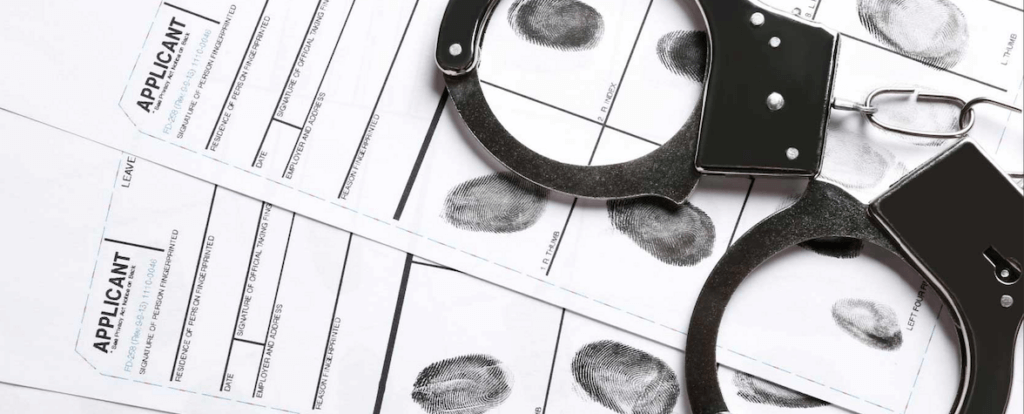Written By:
 Adam H. Rosenblum
Adam H. Rosenblum
Your Dedicated & Trusted Legal Team
3 Generations & 100+ Years of Combined Legal Experience

Whether a conviction involves a minor offense or something more serious, such as a felony, a criminal record will follow a person throughout their life, making it difficult to get back to experiencing normal activities such as traveling. Depending on the type of criminal record and the country being traveled to, a person may even be denied entry into another nation. Therefore, it’s essential to be aware of what situations may be faced when traveling with a criminal record.
Traveling to Other Countries
It’s necessary to know that criminal records can cross international borders and affect entry into one’s destination country. Every country can grant or deny access regardless of a person’s records. Whether or not a person will have an issue when traveling with a criminal record will depend on the destination and the severity of the crime committed.
The first thing to consider when traveling is the destination country itself. The ease of coming and going depends on that country’s laws. Some countries will be easy to travel to with a criminal record, while others will be nearly impossible to enter. For instance, Mexico will rarely check an American’s background before entry, while getting into Canada with one will be difficult for those convicted of a crime.
Canada
Whether flying or driving over the U.S.-Canada border, entry can be denied to any person with any conviction. Even minor offenses, such as DUIs, reckless driving, petty theft, and drug possession, could cause the convicted to be denied entry into the country.
Furthermore, the United States and Canada share criminal conviction information. The person may be denied entry if law enforcement at the border finds a conviction after conducting a background check. When traveling with a criminal record to a country with strict restrictions, such as Canada, it’s recommended that an attorney is contacted to explore all possible options, including the expungement of criminal records.

Europe and the United Kingdom
The ability to travel to Europe with a criminal record will depend on which country is visited. Generally, criminal conviction background checks are not carried out at European borders. Being honest if and when asked about criminal convictions is always advisable.
The United Kingdom (UK), however, is one of the few European nations that will restrict entry for those with criminal records. If a crime was committed and punishment amounted to incarceration for 12 months or more, the UK will likely deny entry to that person.

Caribbean
Most Caribbean nations, excluding Jamaica, will not limit entry for those with criminal records. But Jamaica will not allow those with a felony conviction to enter their country. Given the differing treatment, it’s best to research a destination’s country-specific laws and regulations before traveling there.

What Is an Expungement?
An expungement allows people to clear certain criminal records from their history, essentially making it like the crime has never occurred. Expungements benefit those seeking job employment, applying for a loan, or looking for housing.
Expungements can also be beneficial for those with criminal records traveling abroad. Depending on the country being traveled to, an expungement may make it easier to cross an international border or go through security checkpoints.
Benefits of Seeking an Expungement for Travel
Because an expungement makes it as though the crime never occurred, seeking one is a great first step for those looking to travel outside the country with a criminal record. The laws surrounding traveling with a criminal record will depend on the country. An expungement doesn’t always guarantee entry into the desired country. However, taking the legal steps to expunge a criminal record will decrease the likelihood of the country seeing the records and causing inconvenience.
Obtaining a Passport with a Criminal Record
A criminal conviction usually holds no weight over whether or not someone can get a passport in the United States. However, anyone can be denied one for:
- Possessing a fake passport
- Owing over $5,000 in child support payments
- Being on probation
- Having a warrant out for their arrest
- Being considered a flight risk if they are awaiting trial
- Being currently incarcerated
How Can an Attorney Help?
Losing your right to travel due to your past can be devastating. However, you do have options that can make travel possible again, helping to put the past behind you. If you or a loved one need assistance on how to travel with a criminal record, the team at Rosenblum Law can help. Our attorneys specializing in criminal defense and the expungement process have extensive experience assisting those with criminal records to return to living a normal life. We will take the time to listen to your unique situation and provide the best options and advice available. Email us or contact us today at 888-815-3649 for an initial consultation.

FAQs
How do I know which countries I can and can’t travel to if I have a criminal record?
- Each country has the absolute right to deny or grant access to anyone attempting to cross its borders. For those looking to travel abroad with a criminal record, it is recommended that you research the destination country’s set of laws and the type of offenses that will prohibit entry.
Can I get a passport with a criminal record?
- For the most part, having a criminal record will not hold you back from applying for a passport in the United States. However, the State Department must deny an application for a passport if the criminal offense is a drug-related felony involving drug transportation over borders.
Can an expungement help me travel abroad?
- Because the ability to travel abroad depends on the country of destination, an expungement doesn’t guarantee entry. However, an expungement can make the travel process more effortless.
Should I disclose expunged records during the Global Entry application process?
- Even if a record has been expunged, you should always disclose criminal records. Government agencies, such as the Transportation Security Administration (TSA), Department of Homeland Security (DHS), the Federal Aviation Administration (FAA), and the Federal Bureau of Investigation (FBI), will most likely still be able to see your expunged records and will know about your offense whether you decide to disclose it or not.

 Adam H. Rosenblum
Adam H. Rosenblum
About The Author
Adam is the founding attorney and principal of Rosenblum Law. With more than two decades of legal experience in numerous areas of law practice, his primary focus is law firm management and business development.
Read MoreLatest from Our Blog



Editorial Standards
Rosenblum Law is committed to delivering informative content of the highest quality. All content is subject to our rigorous editorial standards for relevance, accuracy, sourcing, and objectivity. Everything is fact-checked by an editor and reviewed for legal soundness by one of our practicing attorneys prior to being published.
How to Cite Rosenblum Law’s Article
APA
Adam H. Rosenblum (Mar 29, 2021). North Carolina Must Seek Bolder Expungement Reforms to Reduce Recidivism. Rosenblum Law Firm, https://rosenblumlaw.com/north-carolina-must-seek-bolder-expungement-reforms-to-reduce-recidivism/
MLA
Adam H. Rosenblum "North Carolina Must Seek Bolder Expungement Reforms to Reduce Recidivism". Rosenblum Law Firm, Mar 29, 2021. https://rosenblumlaw.com/north-carolina-must-seek-bolder-expungement-reforms-to-reduce-recidivism/
